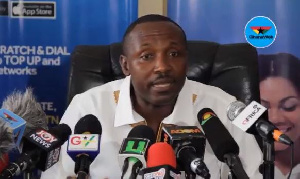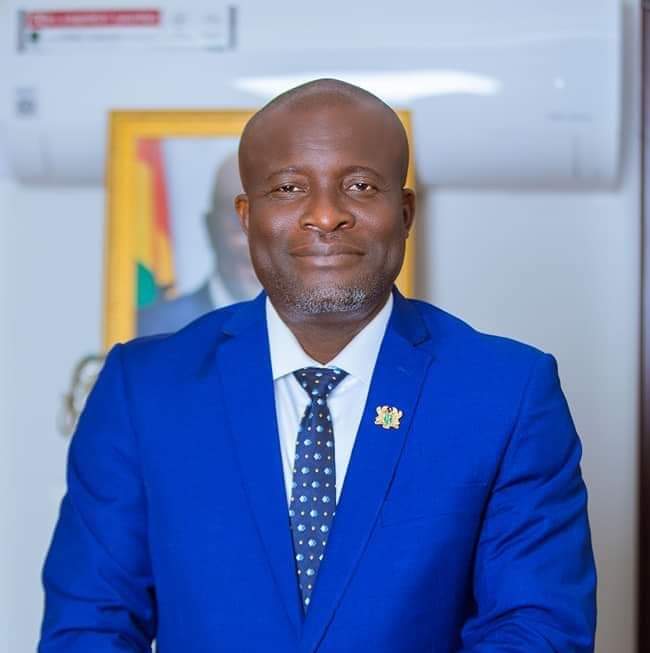Judges frustrating my galamsey fight – Akufo-Addo

President Nana Akufo-Addo has said the amended illegal mining law has had to take away some discretions of judges because they have not been helpful to the fight against galamsey…
President Nana Akufo-Addo has said the amended illegal mining law has had to take away some discretions of judges because they have not been helpful to the fight against galamsey.
At a meeting with the Council of State on Monday, 19 August 2019, the President said he gave his assent to the Minerals and Mining (Amendment) Act, 2019.
The Act has amended the Minerals and Mining Act, 2006 (Act 703), and has increased the penalties for a person who buys or sells minerals without a licence or without a valid authority. The Act has also increased the penalties for a person who engages in mining contrary to a provision of the Act.
The President said: “We are talking about minimum sentences of 15 years, maximum 25 years [for persons involved in illegal mining]. We have increased the punishment for foreigners who intervene illegally in this industry.”
According to the President, “We felt that we have to take away some of the discretion of the judges. It’s unfortunate that it should be so because all of us should be able to trust them to do their bit in stamping out crime and its consequences in our society. But that doesn’t turn out to be the case. So, this is another important step that we’ve taken in this fight against illegal mining”.
Touching on the need for greater discipline and the case for stronger institutions, President Akufo-Addo said: “My own belief is that, apart from exhortations we need also to strengthen the institutional arrangements because many of these things that happen are the result of delinquency on the part of the state itself.”
“Offences and Penalties” of the ACT
99. (1) A person who buys or sells minerals without:
(a). a licence in accordance with section 6, 82, 97 or 104; or;
(b). a valid authority granted under this Act or any other enactment, commits an offence and is liable on summary conviction to a fine of not less than ten thousand penalty units and not more than fifteen thousand penalty units, and to a term of imprisonment of not less than fifteen years and not more than twenty-five years.
(2) A person who:
(a). without a licence granted by the Minister, undertakes a mining operation;
(b). contrary to a provision of this Act;
(c). acts or instigates, commands, counsels, procures, solicits, or in any manner;
(d). purposely aids, facilitates, or encourages, or promotes any acts in contravention of a provision of this Act in respect of which a penalty has not specified, or;
(e). contracts a foreigner to provide mining support services commits an offence and;
(f). is liable to summary conviction to a fine of not less than ten thousand penalty units and not more than fifteen thousand penalty units, and to a term of imprisonment of not less than fifteen years and not more than twenty-five years;
(3) A non-Ghanaian who undertakes a mining operation or facilitates the participation of any person in mining contrary to a provision of this Act commits an offence and is liable on a conviction to;
(a) a fine of not less than one hundred thousand penalty units and not more than three hundred and fifty thousand penalty units, and;
(b) a term of imprisonment of not less than twenty years and not more than twenty-five years; or;
(c) both the fine and the term of imprisonment;
(4) Where a non-Ghanaian who is liable on summary conviction under subsection (3) is a person liable to deportation under section 35 of the Immigration Act, 2000 (Act 573), that foreigner shall, where sentenced to a term of imprisonment, serve the full sentence before deportation in accordance with subsection (3) of section 37 of Act 573.
(5) A Ghanaian who:
(a) permits a non- Ghanaian to undertake or to participate, or;
(b) facilitates the participation of a non-Ghanaian in mining contrary to this Act commits an offence and is liable on summary conviction to a fine of not less than thirty thousand penalty units and not more than one hundred thousand penalty units and to a term of imprisonment of not less than fifteen years and not more than twenty-five years;
(6) A person who fabricates, manufactures or uses a floating platform or any other equipment for mining, dredging or any other mode of mining for the purpose of obtaining minerals in or along the banks of a natural water body including a river, a stream, a water course, the exclusive economic zone and any area covered by the territorial sea or continental shelf of the Republic of Ghana commits an offence and is liable on summary conviction to a fine of not less than fifty thousand penalty units and not more than one hundred thousand penalty units or to a term of imprisonment of not less than fifteen years and not more than twenty-five years or both the fine and the term of imprisonment;
(7) A person who provides of is involved in the provision of an excavator or any other equipment for mining operations contrary to a provision of this Act commits an offence and is liable on summary conviction to a fine of not less than fifty thousand penalty units and not more than one hundred thousand penalty units or to a term of imprisonment of not less than fifteen years and not more than twenty-five years or both the fine and the term of imprisonment;
(8) Where a person is arrested for an offence under subsection (3), (5), (6) or (7), any equipment used in or associated with the commission of the offence and any product derived from the commission of the offence shall, without regard to the ownership of the equipment or the product, be seized and kept in the custody of the police;
(9) A court that convicts a person for any offence under subsection (2), (3), (5), (6) or (7) shall, in addition to the penalty that the court shall impose, order the forfeiture of any equipment or product seized under subsection (8) to the State;
(10) The Minister shall, within sixty days after the confiscation of the equipment or product, allocate the equipment or product to the appropriate State institution and publish in the Gazette the name of the State institution to which the equipment or product is allocated.
(11) In this section, “court” includes the Circuit Court.”
Source: Ghana/ClassFMonline.com





